Molecular basis for maternal inheritance of human mitochondrial DNA
- PMID: 37723262
- PMCID: PMC10763495
- DOI: 10.1038/s41588-023-01505-9
Molecular basis for maternal inheritance of human mitochondrial DNA
Abstract
Uniparental inheritance of mitochondrial DNA (mtDNA) is an evolutionary trait found in nearly all eukaryotes. In many species, including humans, the sperm mitochondria are introduced to the oocyte during fertilization1,2. The mechanisms hypothesized to prevent paternal mtDNA transmission include ubiquitination of the sperm mitochondria and mitophagy3,4. However, the causative mechanisms of paternal mtDNA elimination have not been defined5,6. We found that mitochondria in human spermatozoa are devoid of intact mtDNA and lack mitochondrial transcription factor A (TFAM)-the major nucleoid protein required to protect, maintain and transcribe mtDNA. During spermatogenesis, sperm cells express an isoform of TFAM, which retains the mitochondrial presequence, ordinarily removed upon mitochondrial import. Phosphorylation of this presequence prevents mitochondrial import and directs TFAM to the spermatozoon nucleus. TFAM relocalization from the mitochondria of spermatogonia to the spermatozoa nucleus directly correlates with the elimination of mtDNA, thereby explaining maternal inheritance in this species.
© 2023. The Author(s), under exclusive licence to Springer Nature America, Inc.
Conflict of interest statement
Competing interests:
Authors declare that they have no competing interests.
Figures

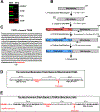
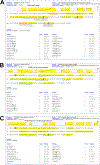
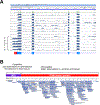
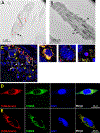
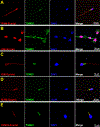




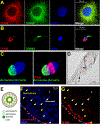
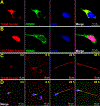
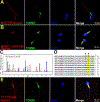
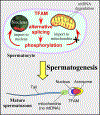
References
-
- Wallace DC Why do we still have a maternally inherited mitochondrial DNA? Insights from evolutionary medicine. Annu Rev Biochem 76, 781–821 (2007). - PubMed
-
- Sutovsky P et al. Ubiquitinated sperm mitochondria, selective proteolysis, and the regulation of mitochondrial inheritance in mammalian embryos. Biol Reprod 63, 582–90 (2000). - PubMed
-
- Sato M & Sato K Degradation of paternal mitochondria by fertilization-triggered autophagy in C. elegans embryos. Science 334, 1141–4 (2011). - PubMed
Publication types
MeSH terms
Substances
Grants and funding
LinkOut - more resources
Full Text Sources
Research Materials

